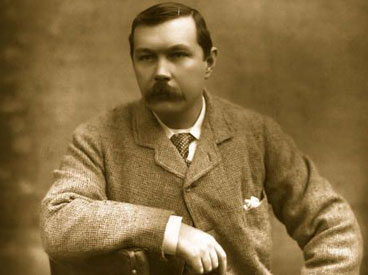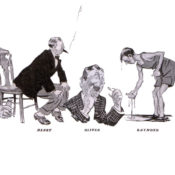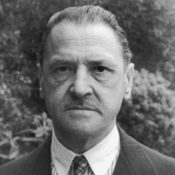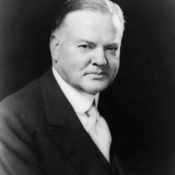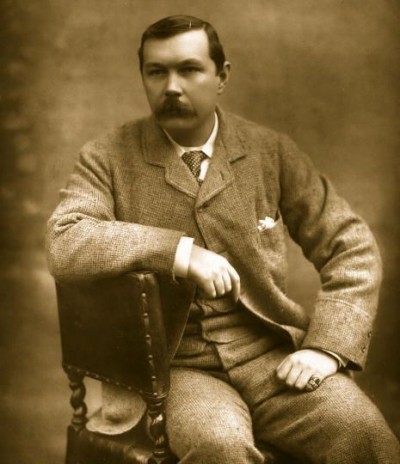
This edition of Famous Contributors to The Saturday Evening Post focuses on Sir Arthur Conan Doyle, the author of the Sherlock Holmes detective books.
His contributions to the Post include “The Death Voyage,” “The Maracot Deep,” and “The End of Devil Hawker,” [see PDF below].
Although his family’s background was in the arts, Doyle chose to focus on medicine rather than the written word as a young man. His mother took in a border named Dr. Bryan Charles Waller in Doyle’s youth, and the man had such an influence on the young boy that he decided to follow in his footsteps and go to medical school. Doyle’s own father suffered from severe alcoholism and was committed to an asylum, and in many ways Doyle looked to Waller and a future medical professor, Dr. Joseph Bell, as father figures.
At university, Bell taught Doyle the value of logic, deduction, and observation–traits that would become central to the personality of Doyle’s famed detective Sherlock Holmes. He was eventually offered a job as a ship’s surgeon on The Hope, a whaling boat bound for the Arctic Ocean. It was this voyage that instilled in him the love of adventure that was prevalent throughout his work, and was the basis for his story Captain of the Polestar.
Eventually he set up a family doctor practice and wrote stories on the side. In 1886 he began writing his big breakthrough, A Study In Scarlet, which introduced the world to the duo of Holmes and Watson. By 1891, Doyle had abandoned his medical career and was writing stories about Holmes—as well as other short stories, historical novels, non-fiction, and more—full time.
Interestingly, Doyle channeled his inner Sherlock later in life. A trial involving the wrongful conviction of George Edalji, a half-English, half-Indian man who was found guilty after blatantly discriminatory police work, caught Doyle’s attention. Doyle’s non-fictitious detective work proved Edalji’s innocence and was a factor in the creation of the Court of Criminal Appeal in England.
Become a Saturday Evening Post member and enjoy unlimited access. Subscribe now
